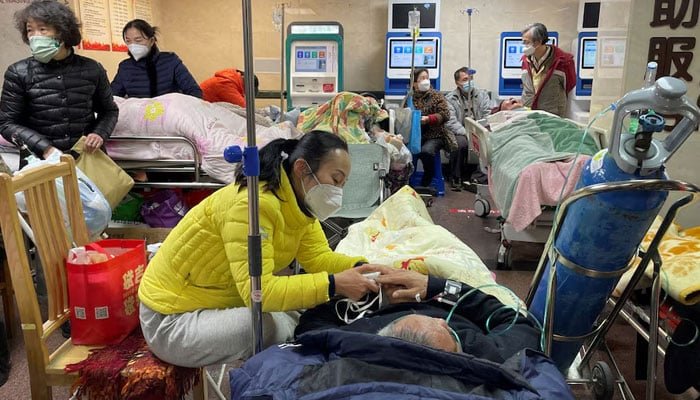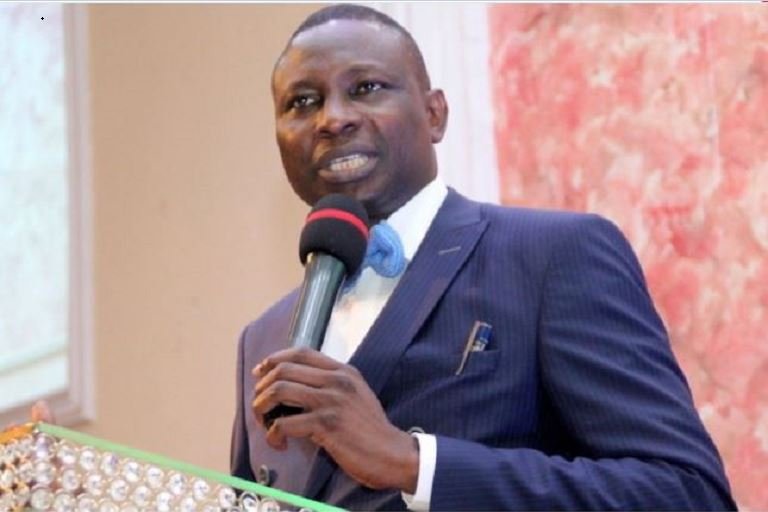The federal government announced on Sunday that it would activate surveillance procedures for inbound passengers from China in response to the current outbreak of a respiratory virus.
According to reports, the virus has resulted in congested hospitals, emergency measures, and widespread public worry in China.
The virus, attributable to the human metapneumovirus, has seen cases soaring across northern Chinese regions this winter, particularly among children.
According to sources, neighbouring nations such as Cambodia, Taiwan, and Hong Kong are actively monitoring the HMPV situation, with only a few cases reported but no significant breakouts.
According to Chinese officials, there has been a noteworthy increase in HMPV cases, notably among children under 14 years old in northern parts of the country.
Social media posts, coupled with videos of congested hospitals, have generated concerns about a larger-scale health crisis.
In response to the escalating number of cases, the Chinese government announced measures such as regular case monitoring, mask use, social separation, and cleanliness of public venues to combat the virus’s spread.
The latest virus outbreak occurs five years after the appearance of a novel coronavirus, COVID-19, in Wuhan, China, which was declared a global pandemic by the World Health Organisation on March 11, 2020.
To date, COVID-19 has infected 777 million individuals worldwide and killed over 7 million, according to the WHO.
Although both HMPV and COVID-19 are respiratory disorders, there are significant variances. HMPV normally causes milder symptoms like a cold or flu, whereas COVID-19, produced by the SARS-CoV-2 virus, can result in more serious health consequences and long-term damage.
HMPV is also a seasonal virus, like other cold-causing pathogens such as RSV, with infections peaking in the winter months.
HMPV, like COVID-19, spreads by respiratory droplets produced when an infected person coughs or sneezes, as well as through contaminated surfaces.
However, experts from the National Health Commission indicated that, while respiratory infections are projected to increase throughout the winter months, the overall situation this year is less bad than the previous year.
Beijing likewise downplayed the developments as a regular winter occurrence.
China’s foreign ministry spokesperson Mao Ning said on Friday, “Respiratory infections tend to peak during the winter season. The diseases appear to be less severe and spread with a smaller scale compared to the previous year,” she said.
China has begun a pilot initiative to track pneumonia of unknown origin, ensuring labs and health organisations record and manage cases more effectively, state broadcaster CCTV reported, citing an administration official at a news briefing.
According to the US Centres for Disease Control and Prevention, HMPV can cause upper and lower respiratory infections in persons of all ages, particularly small children, the elderly, and those with compromised immune systems.
According to the US CDC, HMPV is most likely passed from an infected person to others through coughing and sneezing secretions, close personal contact, and touching objects or surfaces with the viruses on them before contacting the mouth, nose, or eyes.
“Symptoms commonly associated with HMPV include cough, fever, nasal congestion, and shortness of breath. Clinical symptoms of HMPV infection may progress to bronchitis or pneumonia and are similar to other viruses that cause upper and lower respiratory infections.
“The estimated incubation period is three to six days, and the median duration of illness can vary, depending upon severity, but is similar to other respiratory infections caused by viruses,” the US CDC stated.
Meanwhile, Nigerian health authorities have already implemented emergency steps to monitor and manage the HMPV outbreak.
Dr. John Oladejo, Director, Special Duties, Office of the Director-General of the Nigeria Centre for Disease Control and Prevention, said on Sunday that the Federal Government will implement preventive measures by activating monitoring systems to restrict the spread of the virus.
“The FG will activate surveillance measures, like quarantine, for passengers coming in from China,” Dr. Oladejo said.
Earlier in November 2024, the World Health Organisation (WHO) stated that it was closely watching the situation and in close contact with Chinese national authorities and that it would offer updates as needed.
Based on the available information, WHO recommended that people in China take measures to reduce the risk of respiratory illness, such as getting recommended vaccines against influenza, COVID-19, and other respiratory pathogens as appropriate; staying away from sick people; staying at home when sick; getting tested and medical care as needed; wearing masks as appropriate; ensuring good ventilation; and practicing regular handwashing.
“WHO does not recommend any specific measures for travellers to China. In general, persons should avoid travel while experiencing symptoms suggestive of respiratory illness, if possible; in case of symptoms during or after travel, travellers are encouraged to seek medical attention and share travel history with their health care provider.
“WHO advises against the application of any travel or trade restrictions based on the current information available on this event,” the body added.
Meanwhile, medical experts have said that implementing surveillance measures against the virus was a crucial and appropriate step in ensuring that it doesn’t spread to the country.
Dr. Moses Adewumi, a virologist at the Department of Virology, College of Medicine, University College Hospital, Ibadan, said, “On a good day, surveillance should always be part of us. What happens most times is that despite the amount that was voted for COVID-19, we seem to have relaxed. Our people are more interested in spending the money, and after that, we probably decide to go to sleep. So, the surveillance should be a continuous thing.
“It is good that we increase our surveillance for people coming into the country, especially from China, Japan, and other places where we have the outbreaks. The government should be more involved in surveillance because most of the surveillance and all the research we do is funded by foreign bodies, so our own government should be more interested in research and in surveillance for all these viruses.
“The virus is not new, but the surge may be because there is a different variant, and that is why we need to increase our surveillance and monitor it closely to curtail its introduction into the country. Experience has taught us that if we check now, we may have our people with antibodies already, and that’s a confirmation that it’s likely that this is circulating here, maybe not the exact variants that they have now.”
Oladipo Kolawole, an associate professor of infectious diseases and genomics in the Department of Microbiology at Adeleke University in Osun State, said the government’s decision to implement surveillance measures was a good one because it aimed to monitor and control the potential spread of the virus, ensuring public health safety as the situation developed.
Kolawole said, “The government is likely to enhance screening processes at points of entry and provide guidelines for travellers from China; this is to mitigate risks associated with HMPV. Activating surveillance allows for the early detection of cases, which is essential in managing outbreaks effectively. Monitoring travellers from regions experiencing outbreaks can help identify and isolate cases before they spread within the community.
“Also, quarantine for inbound passengers from the affected regions can significantly reduce the risk of transmission. It serves as a precautionary measure to ensure that individuals who may be infected do not unknowingly spread the virus to others. Finally, this situation underscores the importance of preparedness in public health systems.”











